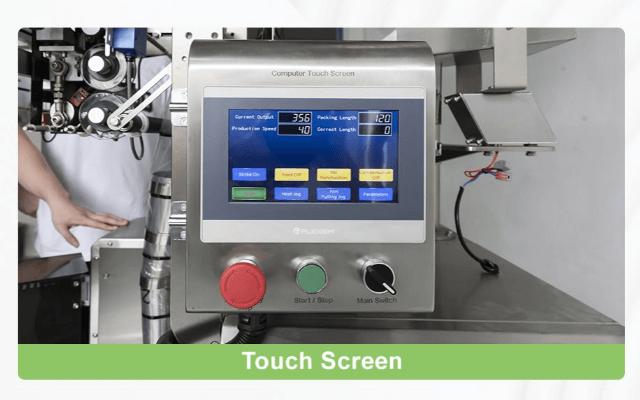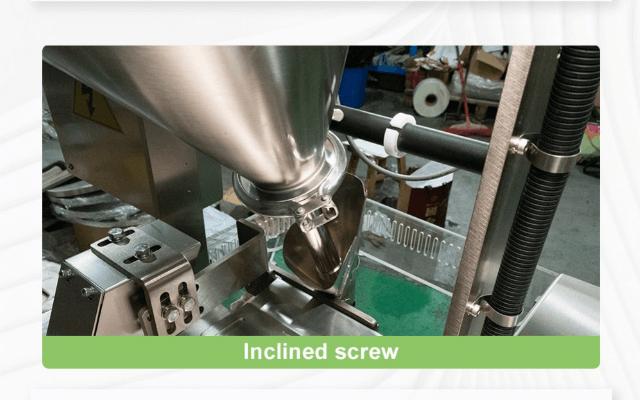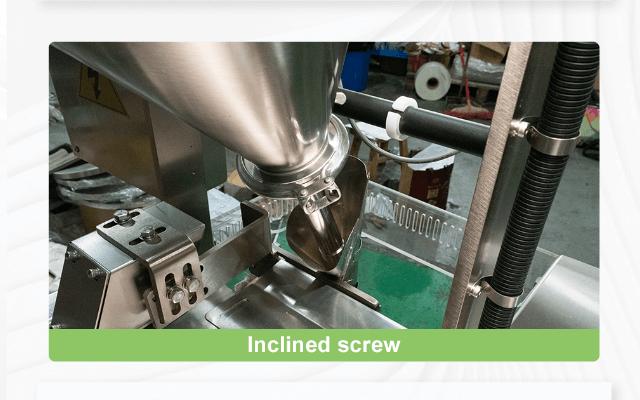Author:YISEN Pouch Packing Machine Manufacturer TIME:2025-04-10
Automatic pouch packing machines are at the forefront of innovation in the packaging industry. With automation leading the way, these machines enhance productivity, reduce labor intensity, and ensure packaging consistency across a wide range of industries such as food, pharmaceuticals, hardware, cosmetics, and electronics.
This article breaks down the complete production process of an automatic pouch packing machine, with clear, numbered steps and detailed explanations of materials, sealing methods, and key advantages.
Automation has completely transformed the packaging industry. With advanced control systems and intelligent machinery, manufacturers can now achieve:
Higher output rates with consistent product quality
Minimized human errors in filling, sealing, and labeling
Reduced manpower and improved workplace safety
Lower energy and material waste
Automatic pouch packing machines are now essential tools in both small-scale and large-scale manufacturing environments, ensuring fast, clean, and accurate packaging.

The first core function of an automatic pouch packing machine is precise filling. The type of filler used depends on the product:
Liquid products: Peristaltic or piston filling systems
Powders and granules: Auger fillers or volumetric cups
Solid items: Weighing systems or counting devices
The machine dispenses exact quantities into each pouch, maintaining product uniformity and reducing material wastage.
Once filled, the pouch moves to the sealing station, where it is securely closed. Sealing techniques vary based on the film material and desired pouch style:
Heat sealing for laminated films
Ultrasonic sealing for thick or multilayer films
Vacuum sealing for perishable items
Common pouch sealing types include:
Pillow sealing
Three-side sealing
Four-side sealing
Center sealing
This process ensures air-tight, tamper-proof pouches that maintain product freshness and shelf life.

Many automatic pouch packing machines include date coding or printing systems. These printers apply critical information to the pouch, such as:
Manufacturing and expiry dates
Batch numbers
QR codes or barcodes
Branding and logos
Using inkjet or thermal transfer technology, printing is synchronized with the production cycle for real-time accuracy.
Beyond the core tasks of filling and sealing, these machines often integrate additional operations, such as:
Pre-packaging: Material feeding, pouch forming, container cleaning
Post-packaging: Product discharge, pouch counting, stacking, and boxing
Automation in these stages minimizes human handling, improving hygiene and productivity.
Automatic pouch packing machines are compatible with a wide range of materials:
Polyethylene (PE)
Polypropylene (PP)
High-density polyethylene (HDPE)
Cellophane
PET/PE
PET/AL/PE
BOPP/CPP
Aluminum foil laminates
These films provide moisture resistance, durability, and heat-sealing compatibility—ideal for food and pharmaceutical use.
To deliver consistent pouch sizes and finishes, cutting mechanisms vary:
Single knife cutting: Basic straight edge
Double or triple knife cutting: Serrated or patterned edges
Perforated cutting: Easy-tear packaging
Precision cutting improves product presentation and customer convenience.
Here are the top reasons businesses invest in automatic pouch packaging systems:
High efficiency: Ideal for continuous, 24/7 production
Hygienic operation: Minimal human contact, essential for food/medicine
Cost-effective: Reduces manual labor, material loss, and operational costs
Consistent quality: Uniform pouch sealing, filling, and labeling
Customizability: Supports various pouch types, sizes, and materials
Automatic pouch packing machines are widely used in:
Food industry: Snacks, sauces, powders, spices, juices
Pharmaceuticals: Pills, powders, syrups
Cosmetics: Creams, gels, masks
Household products: Detergents, desiccants, cleaning liquids
Agricultural products: Seeds, fertilizers, animal feed
The automatic pouch packing machine has become a cornerstone of modern manufacturing. From small startups to global factories, these machines empower businesses to scale efficiently while maintaining quality and hygiene. As technology evolves, the industry continues to move toward more intelligent, flexible, and eco-friendly packaging solutions.
